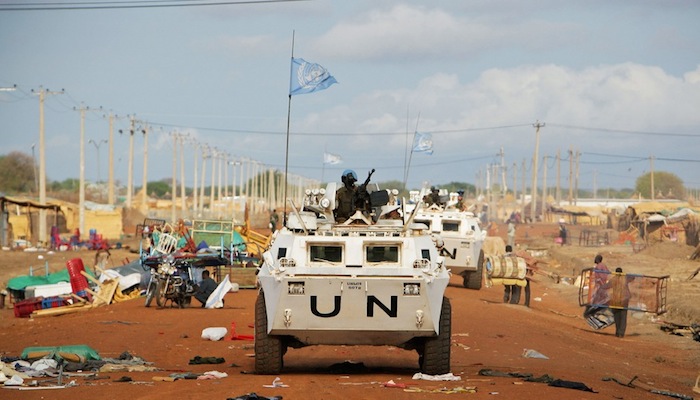الاحتجاجات والأزمة في إيران :تجلّيات الثيوقراط الشيعي في الساحة السياسيّة المُعاصرة
The Protests and the Crisis in Iran: Manifestations of the Shiite Theocrats in the Contemporary Political Arena
اعداد : ماهر لطيف
- المركز الديمقراطي العربي
- مجلة مدارات إيرانية : العدد الحادي عشر آذار – مارس 2021 المجلد 3, دورية علمية محكمة تصدر عن #المركز_الديمقراطي_العربي ألمانيا –برلين” .تعنى بالشأن الإيراني داخليا واقليميا ودوليا.
-
فصلنامه مدارات إيرانية فصلنامه أي علمي از طرف مركز دمكراسي عربي برلن منتشر مي شود.
للأطلاع على البحث “pdf” من خلال الرابط المرفق :-
مُلخّص:
يدرس هذا البحث أزمة النظام الإيراني المُتمثّلة في “ولاية الفقيه الإسلامية” وكيفية امتدادها في أكثر من بلد تحت ما يُسمّى بمبدأ تصدير الثورة خاصّة بعد الربيع العربي الذّي كشف عن ضُعف وهشاشة الدول العربية وعجزها عن فرض سيادتها على مواطنيها، وأثر التشيّع الولايتي على السياسات الداخلية والخارجية لإيران.
وإنّ تخيّرنا لهذا المبحث المُثير للخلاف والجدل اليوم في التاريخ السياسي المُعاصر يسعى إلى بلوغ جملة من الأهداف أهمّها:
- دراسة مُقارنية لحقبتين مُختلفتين للثيوقراط الشّيعي، أوّلها عصر الازدهار أيّام المُرشد الخميني وثانيها بداية تراجع الأيديولوجيا الإسلامية في عهد المُرشد علي خامنئي.
- دراسة الفكر الولايتي الشّيعي حيث مثّلت الطائفة الاماميّة أحد تجلّيات الثيوقراط السياسي الأكثر تأثيرا في الساحة السياسية المعاصرة.
- تناول قضايا ذات صلة بإشكالية بحثنا من قبيل انتشار التعصّب والتكفير والتطرّف المذهبي، والطائفية الدينية والسياسيّة، والعجز عن المُلائمة بين مبادئ الحُكومة الإسلامية ودُستور الجُمهورية المدنية.
- دراسة إمكانية التعايش وحُدودها في ظلّ هيمنة الخطاب الولايتي.
ولمُعالجة هذه القضايا اعتمدنا المنهج النقدي لتحليل القضايا قصد ربط الأطروحات النظرية بالواقع العملي ومقارنتها المعيش، وقد اعتمدنا على 3 عناصر فضلا عن مُقدّمة وخاتمة:
1ـ دوافع الاحتجاجات الإيرانية:
- أـ الدوافع الاقتصادية:
- ب ـ انتشار الفساد وغياب العدالة الاجتماعية في توزيع الثروات:
- ج ـ سياسة التمييز ضد الأقليات:
- د ـ تزايد الضغوط الخارجية على النظام الإيراني:
2ـ الثيوقراط الشيعي من خلال نظرية ولاية الفقيه وتجلياته على السياسة الداخلية والخارجية:
- أـ الروافد الغربية والجذور الفلسفية لنظرية ولاية الفقيه:
- ب ـ تأثير ولاية الفقيه على السياسة الداخلية في إيران:
- ج ـ تأثير ولاية الفقيه على السياسة الخارجية:
3ـ انعكاسات الأزمة على شرعية أيديولوجيا ولاية الفقيه:
Abstract
This research studies the Iranian regime’s crisis represented in the “Islamic guardianship of the jurist” and how it extended in more than one country under the so-called principle of exporting the revolution, especially after the Arab Spring, which revealed the weakness and fragility of the Arab countries and their inability to impose their sovereignty over their citizens, and the impact of state Shiism on domestic and foreign policies. To Iran.
Our choice of this controversial and controversial topic today in contemporary political history seeks to achieve a number of goals, the most important of which are:
A comparative study of two different eras for the Shiite theocrats, the first of which is the era of prosperity during the days of the Khomeini guide, and the second is the beginning of the decline of Islamic ideology during the era of Supreme Leader Ali Khamenei.
– The study of the Shiite wilayat thought, where the Imamate sect represented one of the most influential political manifestations of theocracy in the contemporary political arena.
– Addressing issues related to the problem of our research, such as the spread of intolerance, unbelief, sectarian extremism, religious and political sectarianism, and the inability to harmonize the principles of Islamic government with the constitution of the civil republic.
Studying the possibility of coexistence and its limits under the hegemony of the state discourse.
To deal with these issues, we adopted the critical approach to analyze the issues in order to link the theoretical theses with the practical reality and compare them with living. We have relied on 3 elements in addition to an introduction and conclusion.
1- The motives of the Iranian protests:
A- Economic motives:
B- The spread of corruption and the absence of social justice in the distribution of wealth:
C- The policy of discrimination against minorities:
D- Increasing external pressure on the Iranian regime:
2- The Shiite theocracy through the theory of velayat-e faqih and its manifestations on domestic and foreign policy:
A The Western tributaries and the philosophical roots of the theory of velayat-e faqih:
B- The impact of Wilayat al-Faqih on domestic politics in Iran:
C- The impact of Wilayat al-Faqih on foreign policy:
3- The implications of the crisis on the legitimacy of the ideology of Wilayat al-Faqih




